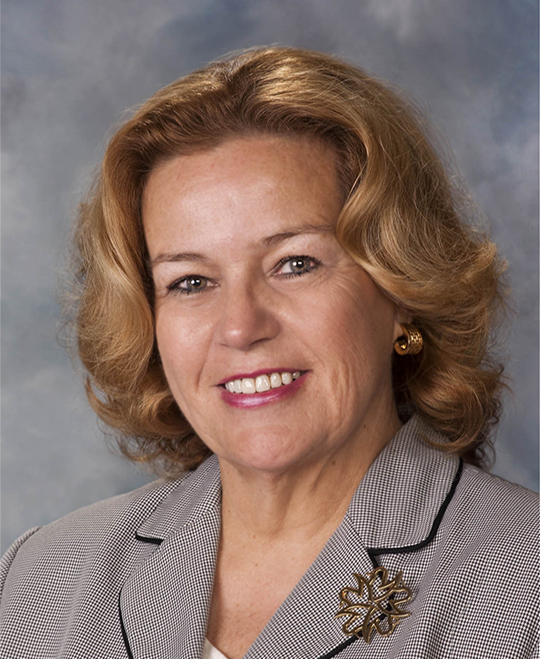By Ellen Beatty
Around Milford

Ellen Russell Beatty.
Albert Einstein taught us that we cannot solve problems from the same consciousness we used when we created them. This very wise caution has important implications at this time in our political history.
Current neurological understanding of the human brain indicates that we have a capacity to unlearn old ways of thinking and learn new approaches. This emerging science provides positive direction for human aging, for treatment of traumatic brain injury and for those who struggle with neurological and behavioral challenges. This same understanding can be brought into the political arena to improve governing for the people.
Perhaps restructuring our perception of the Connecticut world that we live in will bring some creativity to our challenges. We have become embroiled in resistive thinking, which can only lead to ineffective problem solving. It has become common to take sides, to strive only to win arguments and to use the same strategies repeatedly without examination of results – indeed, despite poor results. This leads to oppositional thinking or inaction which dooms us to repetition and inadequate problem solving. Aiming to win without understanding the broader consequences of decisions is not an effective strategy for the long run.
The good news is that we can unlearn our political strategies and relearn new ones.
What if we used the principles of reframing, utilized in organizational leadership circles, to approach complex problems in a different manner? Reframing places the problem in a larger context, avoiding the premature closing of discussion around fixed positions.
Perhaps it is too late to reboot the tolls issue in Connecticut to have productive discussion. There is plenty of blame to go around on all sides, over long periods of time and across different political parties. Currently we seem stuck in a binary argument that has the potential to become toxic. Our elected officials in Hartford will struggle to work out a compromise in the special session. This is an opportunity to suggest a better way for the next complex issue confronting us.
It did not have to be this way. We can reframe problems and rearrange our thinking so that we consider real strategies to produce results without the awful sense that someone wins and someone else loses. Every crisis brings opportunity. Hidden in the discussion of an aging infrastructure in dire need of rehabilitation is the opportunity to find long-term solutions.
Our state with an economy on the mend requires a solid infrastructure, effective transportation in order to attract people to live and work here. Infrastructure, transportation, housing, education, small business development and the environment are all interconnected and must be addressed as parts of a whole.
Many elected officials have worked very diligently, but some have seized on the wrong questions based on a faulty premise that there were only two answers. We seemed to have skipped the critical step of reaching consensus regarding the problem before us. The questions might have focused on the process rather than the pros and cons of particular solutions. How can we plan for, finance and implement roads in Connecticut? What possible revenue streams are required and in what time frame? What are the risks of nonaction? What are the unintended consequences of solving one issue without consideration of the broader effects?
When we approach the next in a series of complex problems, we might take the time to reframe the issue so that more people will engage in creative solutions.
What a pleasure to read this article! It’s great to know that there are people that can propose a solution to the endless arguing, name-calling, and friction among our elected officials. Ellen Beatty is offering new ways to work out differences of opinion concerning all the issues facing our cities, states and country.” Reframing” problems sounds like a solid, rational and enduring solution to stop all the noise.